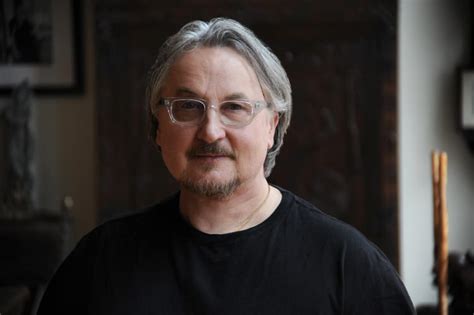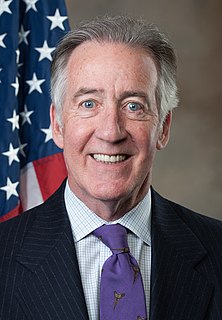A Quote by David Suzuki
Human use of fossil fuels is altering the chemistry of the atmosphere; oceans are polluted and depleted of fish; 80 per cent of Earth's forests are heavily impacted or gone yet their destruction continues. An estimated 50,000 species are driven to extinction each year. We dump millions of tonnes of chemicals, most untested for their biological effects, and many highly toxic, into air, water and soil. We have created an ecological holocaust. Our very health and survival are at stake, yet we act as if we have plenty of time to respond.
Quote Topics
Act
Air
Atmosphere
Biological
Cent
Chemicals
Chemistry
Created
Depleted
Destruction
Driven
Dump
Each
Each Year
Earth
Ecological
Effects
Extinction
Fish
Forests
Fossil
Fossil Fuel
Fossil Fuels
Fuels
Gone
Health
Highly
Holocaust
Human
Impacted
Many
Millions
Most
Oceans
Our
Per
Plenty
Respond
Soil
Species
Stake
Survival
Time
Toxic
Use
Very
Water
Year
Related Quotes
In the 24 hours since this time yesterday, over 200,000 acres of rainforest have been destroyed in our world. Fully 13 million tons of toxic chemicals have been released into our environment. Over 45,000 people have died from starvation, 38,000 of them children. And more than 130 plant and animal species have been driven to extinction by the actions of humans. And all this just since yesterday.
We are working to understand and regulate per- and polyfluoroalkyl synthetic chemicals, known as PFAS and PFOS, used to make water-repellent fabrics and non-stick products. These chemicals have been in prevalent use since the 1940s, but we need to learn more about their potential effects on human health and the environment.
By 2050, at bio-extinction's current rate, between 25 per cent and 50 per cent of all species will have disappeared or be too few in numbers to survive. There'll be a few over-visited parks, the coral reefs will be beaten up, grasslands overgrazed. Vast areas of the tropics that have lost their forests will have the same damn weeds, bushes and scrawny eucalyptus trees so that you don't know if you're in Africa or the Americas.
Today, about 40 percent of America's carbon pollution comes from our power plants. There are no federal limits to the amount those plants can pump into the air. None. We limit the amount of toxic chemicals like mercury, and sulfur, and arsenic in our air and water, but power plants can dump as much carbon pollution into our atmosphere as they want. It's not smart, it's not right, it's not safe, and I determined it needs to stop.
The number of people displaced by dams is estimated at between 40 million and 80 million, most of them in China and India. The costs of dams were on average 50% above their original estimate. Some designed to reduce flooding made it worse, and there were many unexpected environmental disadvantages, including the extinction of fish and bird species. Half the world's wetlands had been lost because of dams.
This generation has altered the composition of the atmosphere on a global scale through radioactive materials and a steady increase in carbon dioxide from the burning of fossil fuels. Entire regional airsheds, crop plant environments, and river basins are heavy with noxious materials. Motor vehicles and home heating plants, municipal dumps and factories continually hurl pollutants into the air we breathe. Each day almost 50,000 tons of unpleasant, and sometimes poisonous, sulfur dioxide are added to the atmosphere, and our automobiles produce almost 300,000 tons of other pollutants.
The tea is pure chemistry, and so is everything else. But chemistry can be highly active with nutrients, it could be not very active and empty of nutrients or it could be a toxic, polluted substance. That's what interests me as an environmentalist, because I think we should only produce the purest, finest things. Then there would be no toxic side effects. There would be no wastes, because everything would be used responsibly.
The wealth of the nation is its air, water, soil, forests, minerals, rivers, lakes, oceans, scenic beauty, wildlife habitats and biodiversity... that's all there is. That's the whole economy. That's where all the economic activity and jobs come from. These biological systems are the sustaining wealth of the world.
We need a firm cap on carbon emissions from fossil fuels. No coal, oil, or gas could enter the economy until the buyer had a permit. All permits would be auctioned by the federal government, and the number of permits auctioned would be decreased by three percent per year. Permits could be traded, but they could not be created out of whole cloth by companies that plant forests or dump iron filings at sea.




































